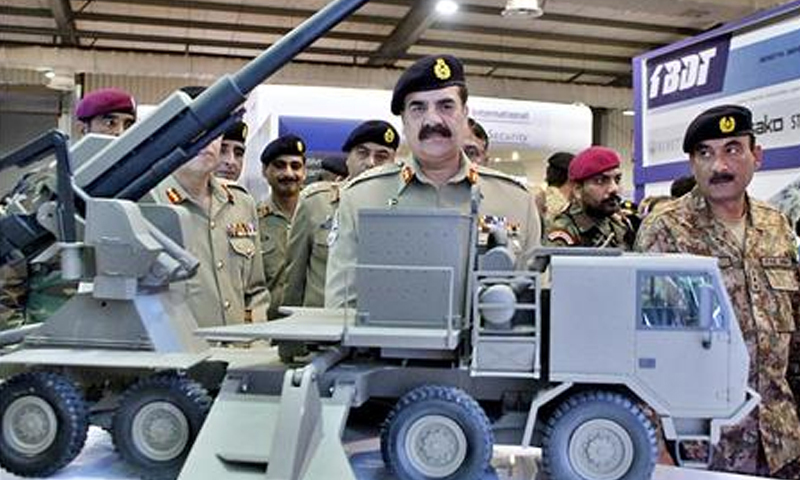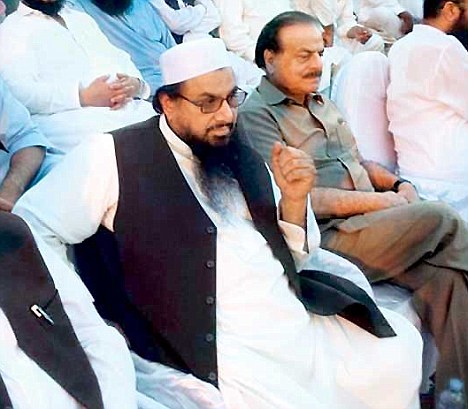
COAS Gen Raheel gave an important comment during recent IDEAS 2014 expo in Karachi about the importance of solving Kashmir crisis and the role of ‘non-state actors’ in harming the national security.
“In contemporary geopolitics, the battles are no longer between state and non-state actors but are with supra-individuals, those individuals who exploit both the national and international space for their desired objectives. These supra-individuals have the capacity to manipulate networks, organisations and state institutions to create waves of instability and create discord at the centre of the state institutions. Explosions are still a viable tool of war, but implosions are the new defeat mechanisms.”
As if to emphasise his point, a few hours later a band of jihadi militants launched a deadly attack in Kashmir.
Militants in Indian-held Kashmir attacked an Indian army camp Friday, triggering a fierce gun-battle that left 11 Indian troops and six suspected assailants dead, officials said.
The attack is no surprise. Jihadi groups have been openly warning of their plans to increase attacks since long. These attacks were certainly carried out by ‘non-state actors’, but the question is how they were able to carry out attacks without the knowledge of ISI and Army who are watching the area with a careful eye.
With this back drop, the Army chief’s words are very interesting. Not only did he suggest that non-state actors were making Pakistan less secure, he came very close to naming names. The Army chief did not name any names when he mentioned that Pakistan’s current enemy includes “supra-individuals have the capacity to manipulate networks, organisations and state institutions to create waves of instability” who “lives within us and looks like us”, but the definition is not hard to place.

“Explosions are still a viable tool of war, but implosions are the new defeat mechanisms.” –COAS Gen Raheel
![]()





